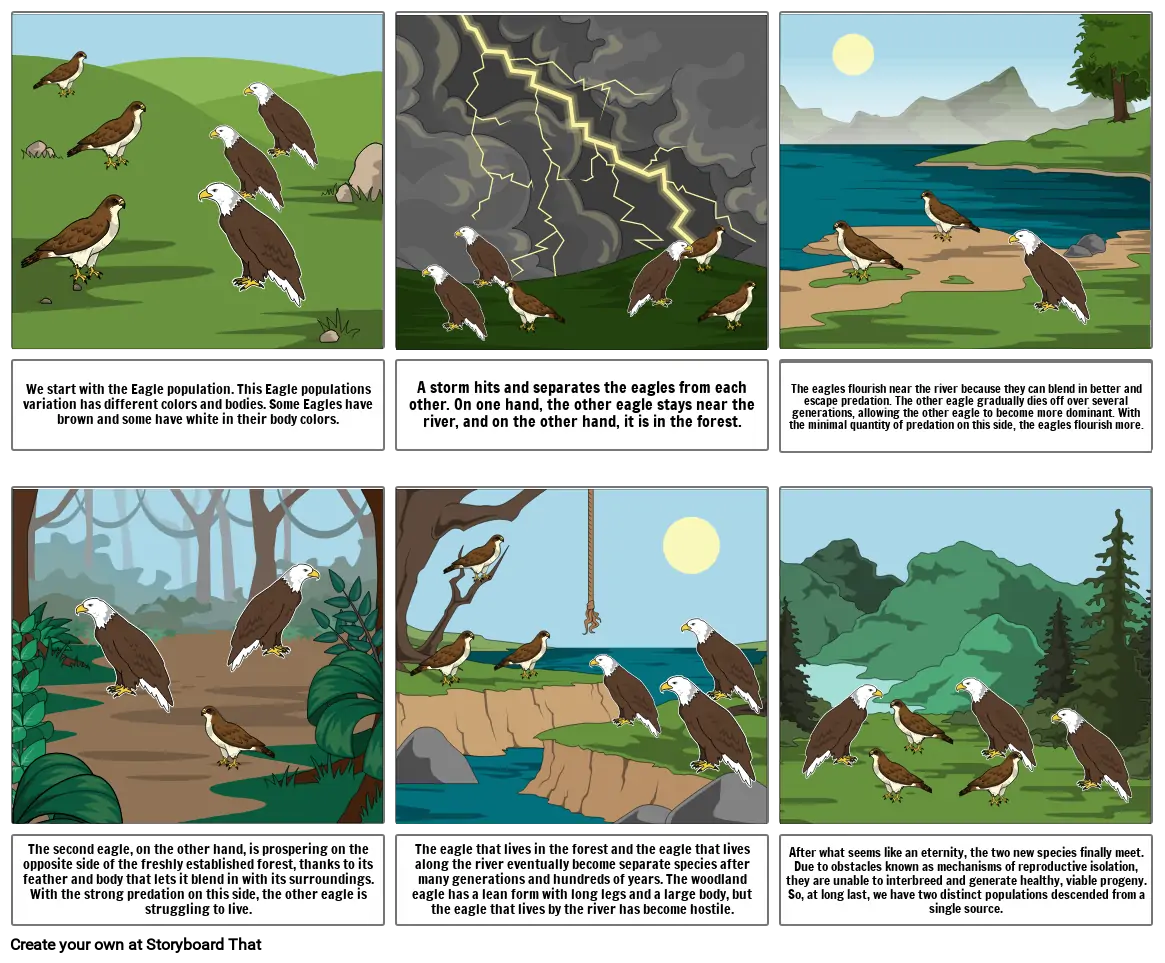BONDOY, JORIEL D.-SJOG-WS#3

Storyboard Text
- We start with the Eagle population. This Eagle populations variation has different colors and bodies. Some Eagles have brown and some have white in their body colors.
- A storm hits and separates the eagles from each other. On one hand, the other eagle stays near the river, and on the other hand, it is in the forest.
- The eagles flourish near the river because they can blend in better and escape predation. The other eagle gradually dies off over several generations, allowing the other eagle to become more dominant. With the minimal quantity of predation on this side, the eagles flourish more.
- The second eagle, on the other hand, is prospering on the opposite side of the freshly established forest, thanks to its feather and body that lets it blend in with its surroundings. With the strong predation on this side, the other eagle is struggling to live.
- The eagle that lives in the forest and the eagle that lives along the river eventually become separate species after many generations and hundreds of years. The woodland eagle has a lean form with long legs and a large body, but the eagle that lives by the river has become hostile.
- After what seems like an eternity, the two new species finally meet. Due to obstacles known as mechanisms of reproductive isolation, they are unable to interbreed and generate healthy, viable progeny. So, at long last, we have two distinct populations descended from a single source.
Over 30 Million Storyboards Created

